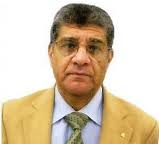Egyptian Copts have been paying a high price for survival in the land of their ancestry. In the seventh century, Arab-Muslim conquerors of the Roman occupiers of Egypt demanded that Copts (Egyptians) convert to Islam or die. Fortunately, there was a third choice that kept the native Copts alive – as a denigrated class of citizens they were mandated to pay exorbitant taxes called Jizya on wages. This lasted through the mid-19th century. Faith in Christ, belief in miracles, reliance on the church body and clergy made and make it possible for Copts to co-exist with Islamic supremacy. Oppression and discrimination against Copts has been normalized over many centuries.
In October of 2010, a few months before the outbreak of the freedom movement in the Egyptian streets made headlines across the world as a part of the “Arab Spring,” a quiet revolution began to stir among Christ worshippers deciding for the first time to defend their churches and neighborhoods against the barrage of unprovoked attacks by Muslim gangs and their police accomplices suffered for so long. The Mespero freedom fighters, a group originating with this revolt, soon joined with liberal, secularist, pro-democracy freedom fighters in January of 2011 to form a genuine Egyptian freedom coalition.
When the Muslim Brotherhood hijacked the protest coalition in early 2011, Cairo’s Tahrir Square revolts solidified against the Mubarak regime. Ousting the president-dictator was optimal, but, as a result of this, today’s conflict between Egyptians arose. At first, the secular, liberal Egyptians lost out to the Muslim Brotherhood terror organization and the religiously conservative Morsi presidency. Copts bore the brunt of Morsi’s Islamist power surge and received worse after his removal. In fact, the entire three-year span of Egypt’s revolution brought a flood of deadly aggression against Copts. Even now, as the tide is reversing to subdue Islamists and oust terrorist groups, nothing has altered the Copts’ tragic situation as targets of violence.
A review of recent history where Copts have been under attack, suffer great losses and remain under threat
The Upper Egypt province of Alminya (150 miles south of Cairo) was the first area to receive acts of revenge after the January 2011 uprising. These included episodes of deadly assaults and kidnappings of children. Stores and homes were looted, and the towns of Samalut, Abu kurkas and Magagha saw Christian medical doctors kidnapped and held for ransom. Of course trials were never held for those arrested for the crimes because Copts were intimidated into “peace” agreements with the perpetrators, agreeing not to press charges and to pay extortion money to the attackers. Copts were forced to participate in the Arab-Muslim arbitration sessions to bring such “justice” about.
In Delga, after Morsi was arrested, Copts were forced to walk away from their land or sell property for minor compensation, yielding to the thug power of Islamist forces. The ancient seventh century Church of the Virgin Mary was burned and destroyed and now remains among the world’s prominent historic losses due to Islamic hatred of non-Muslims and their religious beliefs.
In Assiut, the capitol of Upper Egypt, a child Copt is worth a ransom of one million Egyptian pounds. Mubarak’s installation in the early 1980’s marked the beginning of violence against Copts in Assiut’s highly-concentrated Christian population. After Morsi’s removal, Assiut suffered an Islamist wave of atonement called “takfier” with a Muslim Brotherhood campaign to systematically target churches there. Takfier is the Islamists’ justification for last October’s killing spree of Copts leaving a wedding at Saint Mary Church in Al Waraq in the province of Giza where a speeding motorcycle sprayed gunfire into the exiting crowd killing an eight year-old girl and four others.
The Coptic churches in Cairo often are targeted after Islamic Friday prayers. This proves to Christians that mosque preaching and prayers stimulates hatred toward them. Muslims responsible for graffiti cursing the Coptic Pope soiled the wall of the historic Church of Saint Mary in Zyton, the section of Cairo where Copts have claimed a sighting of the Virgin Mary.
In Dahshor, Muslim mobs firebombed homes and businesses in this predominantly Coptic town taking revenge on an entire population for the accidental damage done to a shirt of a Muslim client by a Coptic-owned laundry. Copts (130 families) fled their homes to save their lives. Only 30 families braved a return to their neighborhood where Muslim raiders now occupy their Christian neighbors’ homes.



